 If you can be arsed to read it all the way through, you'll find some captivating glimpses into Britain's export trade in beer in the first half of the 19th century. It shows that Porter, far from being driven out of tropical markets by Pale Ale, was still extremely popular in many of the hotter areas of the world. (Which should come as no surprise to anyone who's been to the Caribbean, where Stout is still surprisingly popular.)
If you can be arsed to read it all the way through, you'll find some captivating glimpses into Britain's export trade in beer in the first half of the 19th century. It shows that Porter, far from being driven out of tropical markets by Pale Ale, was still extremely popular in many of the hotter areas of the world. (Which should come as no surprise to anyone who's been to the Caribbean, where Stout is still surprisingly popular.)Other points of note? References to muslims supping Porter. The classic description of Mumme as "a thing to be eaten with a knife and fork". A mention of Hodgson's Pale Ale.
"The increase of brewers has kept pace with London's increase in other respects. The 26 brewhouses of the reign of Elizabeth had become about 55 in 1759-60, and upwards of 148 in 1841. The number of barrels of beer brewed by the twelve principal brewers in London was—284,145 in 1782; 1,097,231 in 1808; and 2,119,447 in 1836.
The genuine London beer (although we learn from the ' Brewers' Annual' that there are only three brewers in London—Reid, Meux, and Courage—who do not brew pale ale, and that there are a few who brew nothing else) is the brown stout. It is the perfection—the ideal of the "berry-brown ale" and the "nut-brown ale" of the old songs. It is what the poet of those antediluvian days fancied, or a lucky accident enabled their brewers at times to approach. No disparagement to the pale and amber ales, infinite in name as in variety; to the delicious Winchester ; to the Burton, which, like Sancho's sleep, " wraps one all round like a blanket;'' to Hodgson's pale India ale, so grateful at tiffin when the thermometer is upwards of 100, and the monotonousness-creating punkah pours only a stream of heated air on the guests; to the Edinburgh (we mean the Edinburgh as it is not to be had in London *) ; " London particular" is the perfection of malt liquor. As Horace says of Jupiter, there is nothing " similar or second to it"—not even among liquors of its own complexion. Guinness is a respectable enough drink, but we must say that the ascendancy it has gained in many coffeehouses and taverns of London is anything but creditable to the taste of their frequenters. Its sub-acidity and soda-water briskness, when compared with the balmy character of London bottled stout from a crack brewery, are like the strained and shallow efforts of a professed joker compared with the unctuous, full-bodied wit of Shakspere. As for the mum of Brunswick, which enjoys a traditional reputation on this side of the water, because it has had the good luck to be shut out by high duties, and has thus escaped detection, it is a villanous compound, somewhat of the colour and consistence of tar—a thing to be eaten with a knife and fork. We will be judged by any man who knows what good liquor is—by a jury selected from the musical amateurs of the ' Coal-hole,' the penny-a-liners who frequent the ' Cock' near TempleBar, and the more sedate but not less judicious tasters who dine or lunch daily at ' Campbell's' in Pope's Head Alley. Should it be objected that such a tribunal, composed exclusively of Londoners, might be suspected of partiality, let it be a jury half composed of foreigners—Liibeck, Goslar in Saxony, and any town in Bavaria can furnish competent persons to decide such a question. The German students are in general (at least in the north) devout beer-drinkers, but they are of the class who love "not wisely but too well"—they drink without discrimination. It is among the Philister of Germany that you must look for connoisseurs in beer.
But the favour in which London beer stands in so many and various regions of the earth may .be received as the verdict of a grand jury of nations in its favour. Byron sings—
" Sublime tobacco, that from East to West
Cheers the tar's labours and the Turkman's rest;"
and he might have added that wherever tobacco is known and appreciated, there too have the merits of London porter been acknowledged. The learned Mei- bomius.t who, in a Latin quarto, has dilated upon the subject of "beer, tipple, and all other intoxicating liquors except wine,'' with the completeness and minuteness of a true German naturalist, and with that placid seriousness which might make what he says pass for a joke if there were only wit in it, or for learning if it contained anything worth knowing, has judiciously remarked that smoke-drinking and beer-drinking are natural and necessary complements of each other. The mucilaginous properties of the beer are required to neutralise the narcotic adustness of the Nicotian weed; and London beer, being the perfection of its kind, naturally takes the lead of all other kinds of beer. Accordingly we find it not only on the shores of the Baltic, where the habit of swilling their own indigenous malt liquors might be understood to have predisposed the natives to its use, but under tropical skies, and among the disciples of the first great teetotaller, Mahomet.
On the Nile and Niger, as has above been hinted, this is not so astonishing. There the natives had already a kind of beer of their own ; and where once a taste for malt has taken root, it would take a cleverer fellow than Mahomet to eradicate it. Burckhardt, in his Nubian travels, gives us a tolerable notion of how vainly the Faquirs and Santons preach against indulgence in boosa; and the last letter from poor Anderson, the only one of Park's European companions who survived to perish with his leader, boasts of having got drunk upon boosa with a Moor, and licked his boon companion in his cups. That people accustomed to put up with bad liquor should take kindly to good when it came within their reach is quite natural.It is among the Osmanli, and the Arabs, and the multiform sects of Hindustan, that we are to look for the real triumph of London beer. In the country last mentioned it is true the high-hopped pale ale of Hodgson, Bass, and others famous in that line, appears to be in greater demand; yet the genuine brown stout will be found in a respectable minority. Probably, too, a minute examination would show that it is only at the tiffins of the Europeans that Hodgson's beer is most run upon, and that the dusky natives do more affect the generous liquor that comes nearer to their own complexion. In the tropical climates of the West, among the fiery aristocracy of Barbadoes, the shrewd hard-headed book-keepers of Jamaica, the alternate votaries of the gaming-table and the languishing Quadroons of New Orleans, bottled porter reigns supreme.
Pale ale is a favourite of long-standing in India. It and the darker kinds of beer crept into Arabia, through the English merchants trading to the Red Sea, at least as early as the time of Niebuhr. That traveller saw a serious elderly Mussulman tipple down repeated glasses of Mr. Scott's beer ; gravely remarking " that Mahomet had only forbidden drinking to intoxication, but that as the vulgar did not know when to hold their hands, it was necessary to make them take the total abstinence pledge ; that he, it might appear to his respected entertainers, although a learned man, and an aged man to boot, drained no moderate draughts of their beer, but that he did so solely because he knew that it did not intoxicate." The Scheich must either have been a notorious old humbug, or profoundly simple, to say of good London beer that it did not intoxicate.The Turks, of whom Dr. Clarke tells us in his voyages about the Dardanelles and Egypt, were scarcely more candid, but considerably more ingenious. After the French had been driven out of Egypt, a British trading vessel, which had been fitted out to Alexandria by a speculative dealer in beer counting upon the thirst of a British army in a hot climate, arrived just too late for the market it had counted upon. This was a black look-out for the poor fellow who united in his person the responsibilities of skipper and supereargo; but by good luck there were then, as now (though not to the same extent), some of those questionable characters called antiquaries and the like prowling about Egypt, who were on a convivial footing with some of the laxer sort of Turks. The Osmanli tasted the porter at the houses of their Frank friends, and, rather liking it, were not slow to discover that Mahomet could not possibly have prohibited a liquor of which he had never heard, and, without affecting, like Niebuhr's friend, to believe that it did not intoxicate, drank copiously. The skipper found the Turks better customers than the Franks ; and we believe the sale of the article has continued to increase both at Alexandria and Constantinople.
Porter-drinking needs but a beginning; wherever the habit has once been acquired it is sure to be kept up. London is a name pretty widely known in the world : some nations know it for one thing, and some for another. In the regions of the East India Company, where missionary exertions are not much favoured, it is known as the residence of " Company Sahib ;" in the islands of ocean it is known as the place whence the missionaries come ; the natives of New Holland naturally regard it as a great manufactory of thieves ; the inhabitants of Spanish America once looked upon it as the mother of pirates. But all nations know that London is the place where porter was invented; and Jews, Turks, Germans, Negroes, Persians, Chinese, New Zealanders, Esquimaux, Copper Indians, Yankees, and Spanish Americans, are united in one feeling of respect for the native city of the most universally favourite liquor the world has ever known.
*Good Edinburgh ale must be allowed time to ripen into excellence. When bottled, it ought to be cloyingly sweet, and so glutinous that when some is poured upon the palm, and the hand held closed for five minutes, immersion in warm water is required before it can be opened again. After bottling, the ale ought to stand five years in a cool dry cellar, and four months near a Dutch oven in frequent use. It is then at its best; but even then it is more like a liqueur to be sipped than a liquor to be drunk.
"London" by Charles Knight, 1842
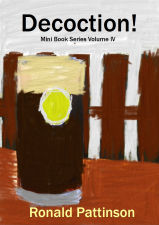



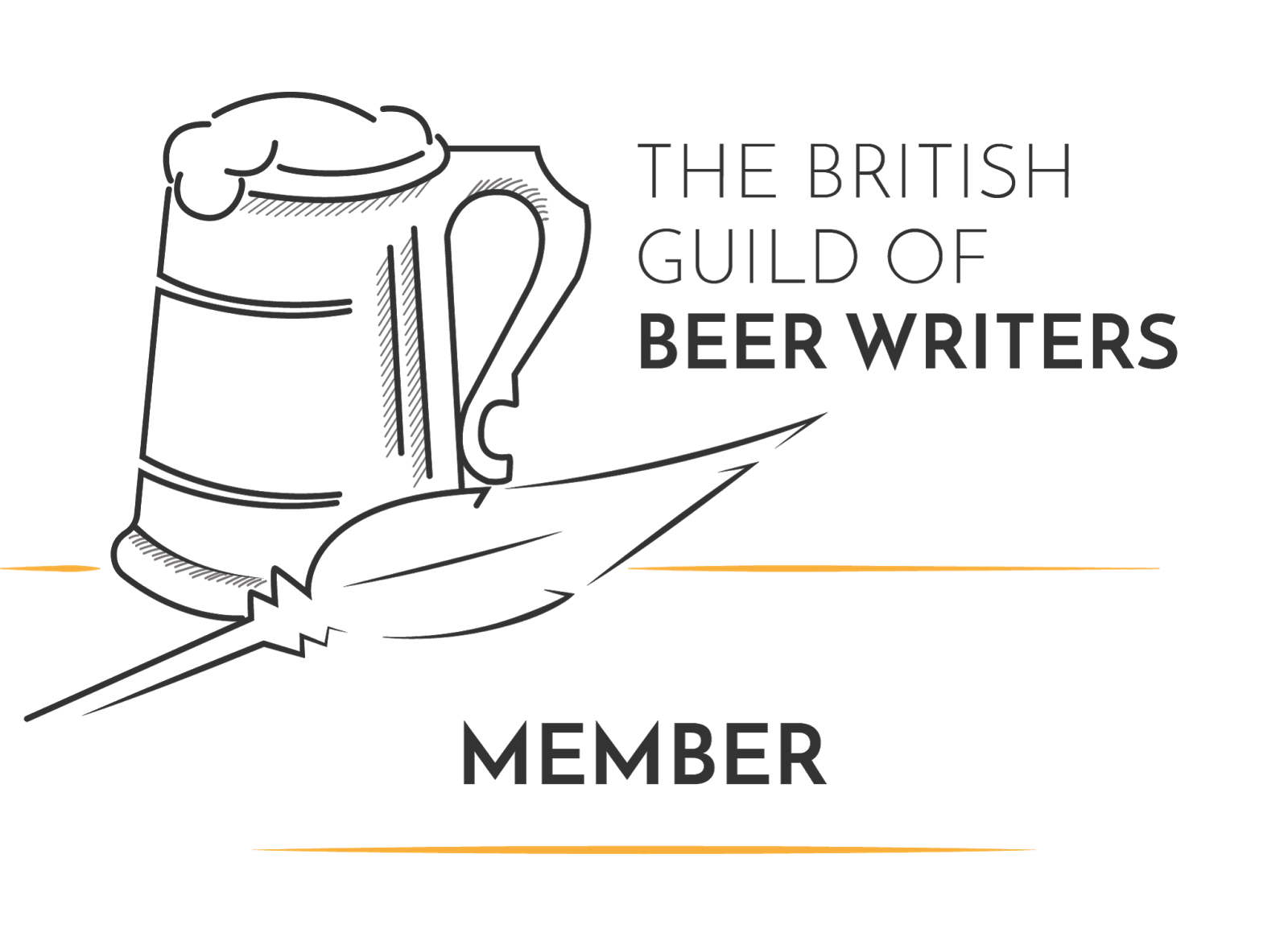









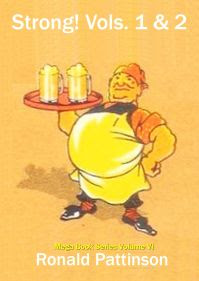


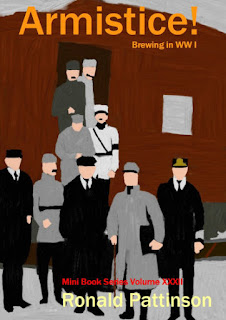
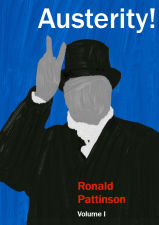

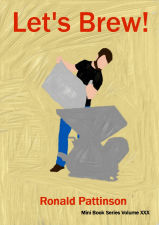

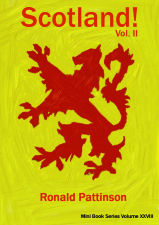



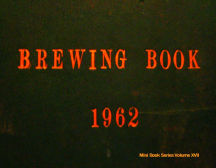
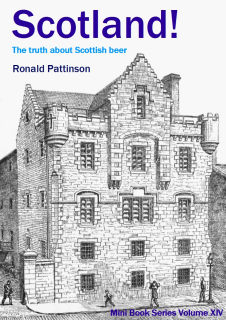
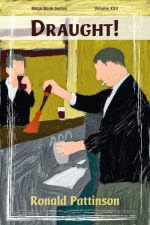

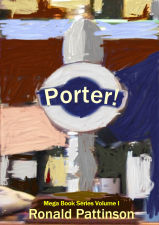

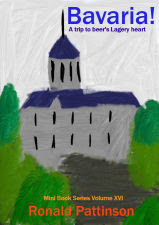

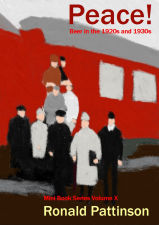

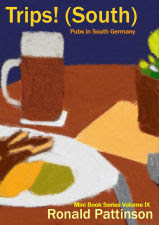
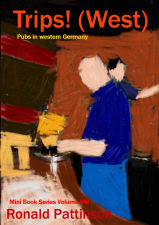
































4 comments:
Ron, the comment about Scottish ale maturing much faster when near a heat source is (amongst much else here) very interesting.
In my view, this ties in to Zythophile's theory that IPA was originally a form of October or stock beer. And we must recall that keeping beers were not always very strong - Combrune refers e.g., to "pale keeping strong, and ... pale keeping small beers" (at pg. 275).
Why did the type of Scots ale kept for years not attenuate out? Maybe it was bottled fairly filtered.
Gary
Gary, I've never read anything about any British beer being filtered in this period. The Edinburgh Ale he's talking about would have had a massive OG - more than 1100. Even at 75% attenuation it would still be pretty thick.
http://books.google.com/books?id=_VoEAAAAQAAJ&pg=PA256&dq=scotch+ale+thomson#PPA158,M1
Ron, the above states (Dr. Ure offers a similar explanation) that the Scots cleansed in the gyle, meaning the clear beer under the yeast layer was dropped into barrels, "where no fermentation takes place".
It is this kind statement that makes me think the bottled beer also might have had little or no yeast (maybe akin to a beer "roughly filtered" today). Also, it explains I think why cask-conditioning was seemingly never very big in Scotland: cleansing in the gyle in the way described is a kind of early brewery conditioning.
As to gravities, I don't doubt some reached the level you mentioned but I believe Scotch ale was closer to the 6-8% ABV level typically. Here is one source:
http://books.google.com/books?id=BAUUAAAAYAAJ&pg=PA235&dq=scotch+ale+sanitary+record
Of course, in practice, and regardless of final gravity, attenuation would have had a lot to do with both the nature of the yeasts used - they may have worked slowly - and the cool conditions in Scotland where they were stored sometimes for years.
Gary
Ron, This is completely off topic. I used to get about four or five colds a year, really nasty crappy runny nose kind of makes you feel like walked in dog shit. Then I was introduced to Homeopathy(sp). A friend in Buxton, Derbyshire is a Homeopath and she turned me on to Aconite as a remedy to prevent colds from getting a grip.
At the first sign of a cold; when you get that scratchy throat, or a sneeze and a bit of a headache, or your eyes hurt, you know the feeling when a cold is about to happen; that is when you take Aconite, 2 of the pills (get the 30x) and then 1 every 15 minutes for an hour. I don't know why but it works for me. It may be auto suggestion or some other physcological deal, I don't really care, all I know is that it works for me.
I have only had a couple of really bad colds in the 10 years that I have known about Aconite.
This is for your information and not intended to be published.
Post a Comment